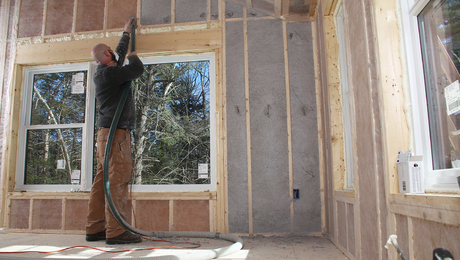Crawl Space Moisture Barrier Product Recommendations
Would like to put a moisture barrier in crawl spaces that have dirt floors. Would appreciate product recommendations.
Would like to put a moisture barrier in crawl spaces that have dirt floors. Would appreciate product recommendations.

In this FHB Podcast segment, the crew offers expert advice on insulating an old home and finding the right contractor to do the job.

"I have learned so much thanks to the searchable articles on the FHB website. I can confidently say that I expect to be a life-long subscriber." - M.K.
Get home building tips, offers, and expert advice in your inbox

Dig into cutting-edge approaches and decades of proven solutions with total access to our experts and tradespeople.
Start Free Trial Now
Get instant access to the latest developments in green building, research, and reports from the field.
Start Free Trial Now
Dig into cutting-edge approaches and decades of proven solutions with total access to our experts and tradespeople.
Start Free Trial NowGet instant access to the latest developments in green building, research, and reports from the field.
Start Free Trial Now© 2025 Active Interest Media. All rights reserved.
Fine Homebuilding receives a commission for items purchased through links on this site, including Amazon Associates and other affiliate advertising programs.
Get home building tips, offers, and expert advice in your inbox
Become a member and get instant access to thousands of videos, how-tos, tool reviews, and design features.
Start Your Free TrialGet complete site access to expert advice, how-to videos, Code Check, and more, plus the print magazine.
Already a member? Log in
Replies
? Why do this?
Different parts of the country need different solutions. In places where there is high humidity and high tempertures, dew point can be as high as 87F.
One has to ask, why do you want to lay plastic sheets over the ground in your crawl space?
What are you trying to achieve?
I imagine that you are concerned that, as wood is hygroscopic, that water vapor coming out of the ground will be absorbed into the wood of your floors and joists, leading eventually to mold and wood rot?
Moisture comes out of the ground as water vapor, and is usually blown away by the wind.
Water vapor is programmed by nature to head for the nearest cold surface to condense, if it is below dew point, otherwise it remains suspended in the air.
If you have a ventilated crawl space, that means that the water vapor, will almost always head to the outside where it is colder. In the summer the ground will be colder in the crawl space and moisture will come in to condense on the colder ground, if it is below dew point.
If you have a sealed crawl space, then the water vapor will condense on the outer walls if they are below dew point, otherwise it will stay where it is.
Because the temperature inside the home is usually higher that that in the crawl space, the underneath of the ground floor boards and joists will almost always be above dew point. While the home is in use this will hold good, when a home is empty and unused or not heated for some time, then the temperature may drop below dew point.
If you have air conditioning, then condensation will form on the floors and joists, if they are below dew point, this will happen regardless of how you treat the ground as the moisture is held in the air.
Summing up, there is not much point intrying to prevent water vapor from rising from the ground.....as it is already in the air.
Crawl Spaces
Crawl spaces are under additions to the main house. They crawl spaces have poured concrete walls, dirt floors, no ventilation to the outside, and are open to the main unfinished full basement. The though is that covering the dirt floors will help cut down on the moldy/musty smell.
In my locale.....
As long as the dirt there always stays dry I'd put down a 4 or 6 mil poly sheet. If it the crawl space gets wet during rainy spells you need to address the drainage first.
Yeah, you want a minimum of about 4 mil. Above that is to just add toughness so it's less likely to be cut/torn when you crawl out there.
There's a lot of products that would work, this company sells a variety you can check out.
http://www.americover.com/heavy_duty_plastic_sheeting_34_ctg.htm
I think the foundation walls should be insulated, then the moisture barrier would be installed. After everything is sealed, I would make the crawl space ventilated to the inside of the house.
Plain old poly sheeting is perfectly adequate in most cases.
Using Vapor Retarder in a Crawl Space
I have an open crawlspace dirt floor with 6 mil sheeting on the floor. I am in Florida with high dew points. I have batt insulation in the floors. That I believe are not working very well. I was thinking of using a higher permeable Vapor retarder (1-10) to my rafters for a better air barrier. Would this be a good idea or would it cause mold?